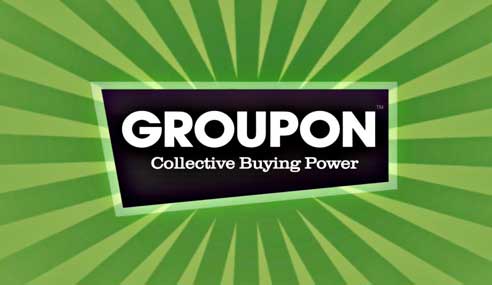By Steven B. Schweitzer
The previous decade was the decade of the i-device and Google. The current decade is already coined as the decade of social media. Early entrants such as Facebook and Twitter are well known and established players. Recent entrant Groupon went from $0 valuation to an offer from Google of $6 billion in just over two years… the offer was declined, by the way. Google was interested in Groupon’s core model, which depends upon the small business, such as a fly shop. Is Groupon good for a small business like a flyshop? Let’s explore…
The Groupon Model
Groupon is credited with creating “social commerce”, a blend of e-commerce, collective buying power and social media/marketing. By recent accounts, Groupon has 37 million plus subscribers and growing. Groupon delivers over 700 “groupons” world-wide, daily, taking in 50 percent of the purchase of each groupon sold. A groupon is nothing more than an online coupon delivered to subscriber email inboxes. Subscribers sign up for the daily E-mail in hopes of getting a killer deal in their area for a product or service. If the minimum amount of groupons are purchased, the deal is on. Groupon encourages businesses to offer at least 50% off the standard retail price and honor the offer for at least 6 months. So, for example, if a round of golf at a local golf course costs $80 for 18 holes, a groupon might offer the same round of golf for $40 and throw in a free electric cart. Groupon rakes in 50 percent of the sales price, taking in $20 for each groupon sold. If 500 groupons are sold, that adds up to some serious scratch (now you can see Google’s interest). Of course, there can be fine print to the offer as well, making groupons somewhat less of a deal and more of a hindrance to cashing them in. So, if groupons are profitable for Groupon and a crap shoot for the customer, is there value to the small business, particulary the fly shop?
Six Ways Groupon Can Help (or Hurt) Your Business
To a small business, Groupon delivers a compelling value proposition, namely:
- A platform to generate new customer leads
- A platform to deliver geographic-centric deals
- A “pay-for-performance” model. A small business pays nothing if the minimum amount of groupons aren’t sold.
- A pure email marketing/advertising medium
- A way to generate buzz and leverage word-of-mouth marketing
- A way to create a “purchasing sense of urgency” with the customer
This all sounds like the perfect companion to a small business, right? Well, maybe not. We’ll present in the June issue of Angling Trade what the advocates and contrarians say about Groupon’s business model and its effect on small businesses. We’ll give the fly shop some tips on how to take advantage of Groupon and pitfalls to avoid which could hurt future business. We’ll present a few case studies where cutting edge fly shops and guide services offered Groupons for products and services explore the outcomes. If you are contemplating using Groupon for your flyshop, you’ll not want to miss this special report in the next issue of Angling Trade. If you have Groupon questions you want addressed in the article, it’s not too late to email them to AT (contact [email protected]). We’ll try to address as many as possible before it’s time to go to print.
Steve Schweitzer is the author of A Fly Fishing Guide to Rocky Mountain National Park http://flyfishingrmnp.com/, and a frequent contributor to Angling Trade.




